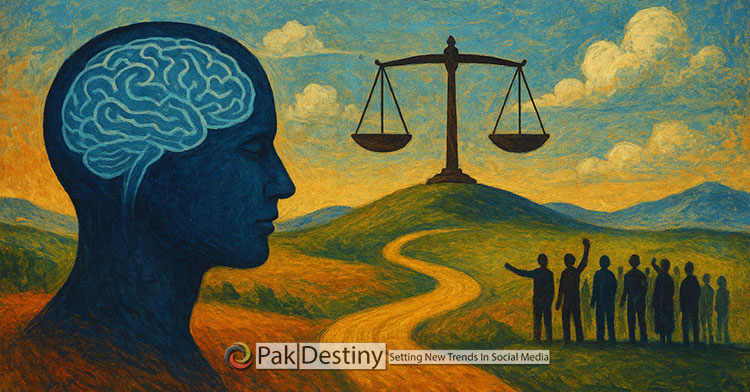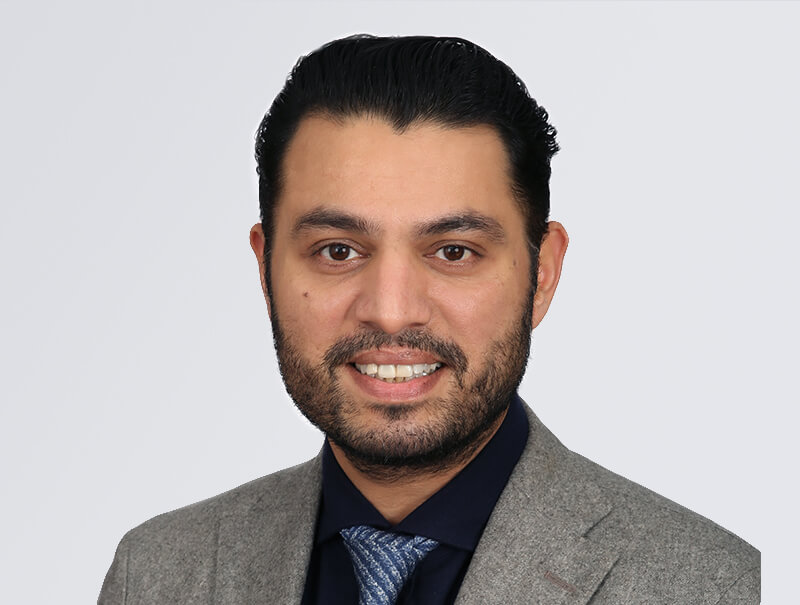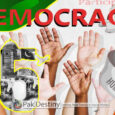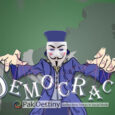
By Dr Sabooh S. Mubbashar
I was watching The Remains of the Day again—one of my favorite films—and was struck, as always, by a quietly devastating scene. Anthony Hopkins, portraying the consummate English butler Stevens, is interrogated over dinner by a group of aristocrats. The moment is drawn from Kazuo Ishiguro’s masterful novel The Remains of the Day, part of the body of work that would later earn him the Nobel Prize in Literature. While the book alludes to the sentiment—that those from the serving class are unfit to opine on matters of state—the film captures it with surgical clarity through dialogue.
One guest asks Stevens: “Do you suppose the debt situation regarding America is a significant factor in the present low levels of trade? Or do you suppose this is a red herring, and the abandonment of the gold standard is the root of the problem?” Stevens, unflinching but cornered, replies: “I’m sorry, sir, but I am unable to be of assistance in this matter.”
The aristocrats smirk. Another follows up: “Do you think that the currency problem inEurope would be alleviated by an arms agreement between the French and the Bolsheviks?”
Stevens repeats: “I’m sorry, sir, but I am unable to be of assistance in this matter.”
It is a thinly veiled critique of democracy itself—an assertion that decision-making should be left to the educated elite. And yet the irony is suffocating: these same men, so confident in their intellectual superiority, are actively engaged in pre-war appeasement of Nazi Germany. They dismiss the working class as too ignorant to govern, even as their own wisdom steers history toward disaster.
Many intelligent people—whether by temperament, training, or lived experience—find it difficult to put their faith in the so-called wisdom of the masses. They are used to their own reasoning, their ability to see nuance, to anticipate flaws. Dissent, in their view, is more often an intellectual exercise, a mechanism to sharpen thinking rather than to redistribute authority.
To them, democracy seems like a system where the loudest voices, not the most thoughtful ones, win. I say this not as critique, but as confession. As someone who is—by training and trade—considered something of an expert, I’ve found myself pulled into this thinking more often than I’d like to admit. Not out of disdain for others, but from a reflexive trust in analysis—in the tidy elegance of reasoned conclusions. It becomes second nature to assume that being right is the same as being entitled to decide.
That may hold true in a narrow field of expertise, but confidence metastasizes easily. The brain, once rewarded for being ‘right,’ applies the same posture everywhere. Critical training has its place—but not in deciding the fate of entire societies.
The temptation is strong. Confidence in reason hardens into a worldview—one that privileges discernment over participation, clarity over consensus. A latent aristocratic instinct, much like that of Stevens’s employers in Ishiguro’s novel, who believed their pedigree entitled them to shape the fate of others.
Yet I’ve learned—reluctantly—that the world doesn’t bend to logic alone. Reason may clarify, but it doesn’t build trust or solidarity. The most rigorous arguments can still fall flat if they fail to meet lived reality. Intelligence can illuminate, but it can also insulate.
Consider the television show Who Wants to Be a Millionaire?. When contestants are
stumped by a difficult multiple-choice question, they’re offered several lifelines—one of which is to ask the audience. On the surface, this seems like the least strategic option.
After all, the studio audience isn’t composed of experts. Most people, when polled, consider this lifeline the least “intelligent” move. And yet, statistically, it’s the most effective one.
Here’s why: the audience is shown several answer choices and asked to vote anonymously.
While only a small minority may know the correct answer, the majority of guesses scatter across the wrong ones. The scattering cancels them out. Meanwhile, the right answer—chosen by the minority who do know it—emerges as the plurality winner.
The result: the audience as a whole picks the right answer far more often than not, even though most individuals are guessing.
This is a televised microcosm of the wisdom of crowds. The paradox is striking: the group may not be smart, but the group’s answer is. What seems like the least rational move—trusting the mob—often turns out to be the most rational. And that paradox sits at the heart
of this piece and my bitter realization: that truth, or at least direction, can emerge not from the clarity of a single voice, but from the chaos of many.
That unsettling faith in the crowd—the belief that the aggregate instincts of ordinary people can lead us somewhere wise—is, at its core, what we call democracy.
Winston Churchill, no intellectual slouch himself, once remarked: “Democracy is the worst form of government—except for all the others that have been tried.” One can easily imagine his frustration. A man of enormous intellect and forceful personality, Churchill likely found
democracy maddening in its inefficiency, its endless debate, its susceptibility to emotion and delay. And yet, he lived long enough, and led deeply enough, to recognize its unmatched resilience. For intelligent people, democracy is rarely satisfying—but it is irreplaceable.
Bertrand Russell—who perhaps put this truth more elegantly than this essay could ever hope to—dedicates a chapter titled The Ethics of Power to examining why alternative systems so often fail. Monarchies, he argues, suffer from the problem of succession: a wise ruler can’t guarantee a wise heir. Aristocracies drift into self-preservation, becoming blind to the needs of the many. Dictatorships concentrate power dangerously, producing leaders who are either corrupt, paranoid, or both. Technocracies—rule by experts—offer precision but not necessarily wisdom or compassion. Even Plato’s philosopher-kings don’t escape scrutiny; Russell dismisses the idea as noble in theory but impossible in practice.
Ideal rulers cannot be reliably produced, and even then, no system can ensure they remain benevolent.
So why democracy? Not because the majority is always right—but because, as Russell puts it, it offers “a means of replacing bad rulers without bloodshed.” Its strength lies not in perfection, but in its ability to course-correct. A system that distributes power, tolerates dissent, and allows for peaceful transitions is the best safeguard we have against the timeless tendency of power to corrupt.
This is not to suggest that every decision belongs to the crowd. No one wants a surgical team to vote on how to operate, or investment advice from a panel of eighth-graders over Warren Buffett. Expertise matters—sometimes profoundly. But when it comes to the fate of societies, to the laws we live under, the rights we protect, and the leaders we choose—there is no substitute for the unruly, uneven, often frustrating wisdom of the many. To believe otherwise is to fall into the same trap democracy was designed to avoid: the belief that most people do not, and cannot, know what’s good for them.
What, then, makes democracy the force of nature it has proven to be? Dissent. Not consensus, not civility, not order—but the ability to speak against all three. Dissent is what gives democracy its edge, its self-correcting capacity, its refusal to calcify.
The wisdom of the crowd—so often held up as democracy’s great virtue—emerges only when dissent is alive and unafraid. A crowd that cannot speak freely, or that mimics a dominant voice out of fear or reverence, loses its intelligence. In societies where dissent is suppressed—by force or by culture—democracy withers.
Many East and Southeast Asian cultures, with deep traditions of deference and collectivism, have struggled with participatory democracy—not from lack of intellect or discipline, but because dissent is seen as disruptive, and conformity as virtue.
Hence, democracy without dissent is theater. Dissent is not merely the right to complain; it is the mechanism by which societies self-correct. When dissent is stifled, democracy becomes a mirror that reflects only power, not truth.
It is easier to highlight the dissenters who were later vindicated—Galileo challenging the Church, Emmeline Pankhurst and the suffragettes defying the norms of their time, or Martin Luther King Jr. confronting the American status quo. These figures make the case for dissent easy to celebrate in hindsight. But that is not the point of this essay. I am not here to defend the dissenters history proved right. I am here to argue for those it proved wrong.
Take the 19th-century opposition to vaccines, or the more recent rejection of climate science. From our vantage point, both are mistaken—and at times harmful. Yet even flawed dissent forces dominant narratives to clarify, to test assumptions, and to respond with reason rather than reflex.
“Wrong” dissent, paradoxically, strengthens the system—because a system that allows only correct dissent isn’t democratic at all. It’s just another form of authoritarianism, disguised
as consensus. This is why it’s not enough to merely tolerate dissent—we must, in some ways, celebrate it. Not because it is right, but because it affirms something larger: that truth does not need protection from error, only space to emerge. That democracy, unlike dogma, makes room for noise. As a fictional U.S. president says in the film The Contender, “Principles only mean something when you stick to them when it’s inconvenient.” That includes the principle of letting people be wrong.
As a psychiatrist, I also understand the human psyche, which is naturally drawn toward clarity and simplicity—especially in moments of fear or crisis. Research confirms this: under stress, people cling to rigid narratives and place their faith in singular figures or ideologies. This isn’t a failure of intelligence—it’s a survival instinct.
Certainty feels safer than ambiguity.
This is why religious narratives endure, why myths of saviors persist, and why the allure of the strongman—of the one voice promising order—is so potent. For the underprivileged and the suppressed, particularly in societies where democratic institutions are weak, the appeal of a populist figure is often less about politics and more about refuge.
And even in well-functioning democracies, it is often those who feel silenced, left behind, or culturally displaced who are most drawn to singular authority. When systems fail to deliver justice or dignity, the human mind does not lean into nuance—it retreats from it.
And here lies a paradox—perhaps the most unsettling one of all. In times of crisis, it is often the very masses whose instincts make democracy viable who become the first to abandon it.
The wisdom of the crowd, so resilient in calm, buckles under fear. Panic drives people toward singularity. When the world becomes unstable, we reach not for systems, but for saviors. Strongmen do not rise solely by force—they rise because people invite them in, hoping for clarity, direction, control.
It is a deeply human impulse. When the going is good, we entertain complexity. We debate. We believe in layers. But in crisis, the psyche contracts. It yearns for one story, one decision-maker, one voice. And again and again, history shows: that clarity is almost always a mirage.
This is not a failure of any one society or a case against the “wisdom of the masses”—it is a feature of human psychology. But democracy does not promise perfection in the moment.
What it offers, uniquely, is a kind of long-haul wisdom—a capacity for correction over time. Even when the crowd errs in crisis, even when it embraces fear over freedom, democracy allows for a return. It builds in the possibility of redemption.
Yes, totalitarian regimes and charismatic autocrats may deliver short-term efficiency.
They can silence opposition, move swiftly, enforce order. But history offers little evidence that this leads to enduring national strength. The promise of strongmen is always clarity; the result is almost always catastrophe. The heart of democracy is not in the assumption that people always choose wisely—but in the enduring faith that they can, eventually.
That faith is not naïveté. It is discipline. It is the gamble that, given time and space, the arc bends back toward truth.
The record of the 20th and 21st centuries overwhelmingly favors democracy as the more durable path to national well-being. Authoritarian regimes—no matter how dynamic their leaders—tend to stall, collapse, or corrode over time. It is the slow, grinding machinery of democracy—frustrating as it may be—that builds resilient institutions and adaptive economies.
Post-war Germany rebuilt itself into an economic powerhouse through pluralism, rule of law, and civic accountability. South Korea’s turn from autocracy to democracy fueled its rise into one of the world’s most innovative societies. North Korea, by contrast, remains isolated and brittle under dynastic authoritarianism. Singapore is often cited as the exception: efficient, stable, and semi-authoritarian. But it thrives not because it suppresses dissent, but because it channels it—within a framework of order, meritocracy, and predictability.
Importantly, the education and prosperity of citizens in these thriving nations is not the outcome of democracy’s success—it is the evidence of it. These are not societies that became educated and then demanded democracy; they are societies where democracy created the space for education, dignity, and growth. It is not “build it and they will come”— it is “let them come, and they will build it.” China—despite its breathtaking transformation—may now be confronting the limits of its model. Innovation slows, criticism is stifled, and trust in long-term adaptability erodes. What holds China back may not be talent or resources, but the absence of authentic dissent and democratic legitimacy.
Speaking personally—as a practicing physician and psychiatrist trained in an Asian culture but working in the American healthcare system—the right to dissent has been one of the most difficult principles to internalize. Watching a patient refuse life-saving treatment, or decline care that could transform their life, is not only professionally painful—it is deeply frustrating. My instinct, shaped by years of cultural emphasis on deference to authority and the presumption of medical wisdom, still recoils at this autonomy.
And yet, I have come to understand that this painful freedom is what defines the ethical backbone of Western medicine—and, by extension, Western democracy.
The right to choose poorly, to err, to refuse, to dissent—it is what protects the soul of the system. It is the cost of genuine respect.
To be clear, I am not suggesting that these individual refusals should be celebrated as moral models or embraced as policy. The point is subtler, but perhaps more radical: that this deeply personal psychological space—the ability to say no even when it’s inconvenient or unwise—is a microcosm of democratic dissent. The individual’s defiance, frustrating as it may be, is the soil from which the masses can eventually assert their collective voice.
It is the seed of self-correction.
This is the paradox at the heart of the democratic experiment: that a nation can be both the land of the free and a nation of laws. That dissent can be not just permitted, but valued—so long as the system remains sturdy enough to withstand it, and flexible enough to grow from it.
That contradiction is not a weakness—it is the very mechanism by which democracy renews itself. Hard as it is to accept, democracy needs that impulse—not because it is always right, but because it is the only thing that makes eventual course correction possible.
I’d be lying if I said this recognition sits comfortably now—it still doesn’t. Accepting that the collective may know better than the expert has been a slow reckoning. The habits of an analytical mind, rewarded for clarity and control, don’t surrender easily. When you’ve spent a lifetime solving problems with precision, it’s unsettling to admit that in systems as vast as societies, truth doesn’t always emerge from mastery—it emerges from mess.
From dissent. From the space to be wrong. And that, I’ve come to realize, is the genius of the American project. Not its intellect, but its tolerance—especially its tolerance for error. It is this permissiveness—this stubborn insistence on allowing dissent, even foolish or inconvenient dissent—that has made the United States such fertile ground for reinvention and progress. The astonishing dynamism of this country didn’t happen in spite of dissent, but because of it.
Which is why my greatest fear, as someone who has come to admire this model, is that
America seems tempted to abandon the very principle that made it succeed. In a culture increasingly allergic to disagreement, tribal in its rhetoric, and quick to punish deviation from orthodoxy—whether political, social, or scientific—we may be trading the winning formula for something more immediately gratifying, but far less enduring.
Even misguided dissent guards democracy from decay. The future of democracy doesn’t depend on who is right—it depends on whether people are allowed to be wrong without being silenced. That is the difference between governance and groupthink, between progress and stagnation. And it is in the tension between deference and dissent that the fate of any democratic experiment is ultimately decided.
I will not end this piece with a tidy conclusion, nor will I offer a sweeping lesson or a singular historical parallel meant to bring everything together. That would only replicate the very impulse this article resists—the urge to simplify what is complex, to resolve what should remain uncomfortable. There is no bow on top. The issues raised here are muddied, overlapping, and deeply human.
I will trust the reader to draw their own inferences, to sit with the ambiguity, and to wrestle with the implications in whatever context they find themselves. Because that, too, is an act of democratic faith.
And if this article is to leave behind any single conclusion, I’d prefer that it not come from me—but from the crowd. History has shown that when given the space, that’s usually where the right answer comes from anyway. And if they disagree with everything I’ve said—good.
I’d welcome the dissenters even more. After all, this piece is a celebration of them.

About Author
Sabooh S. Mubbashar, M.D. is a practicing psychiatrist





Excellent Analysis. Restoring faith in the current democracies. Unfortuantely like degenerative plagues in the brain, corruption ,non fluid justice and systematic control of population through generations of decay has left democracy on a ventilator. A mere puppet of the powerful. Ultimately good systems are as good as the sum total of humanity and compassion index of a population.